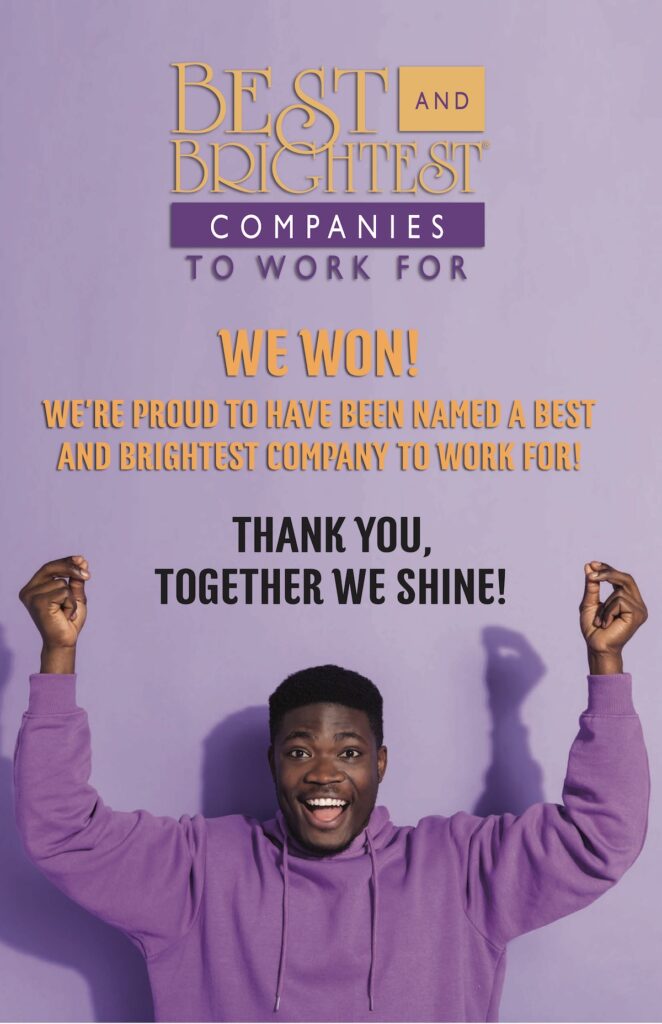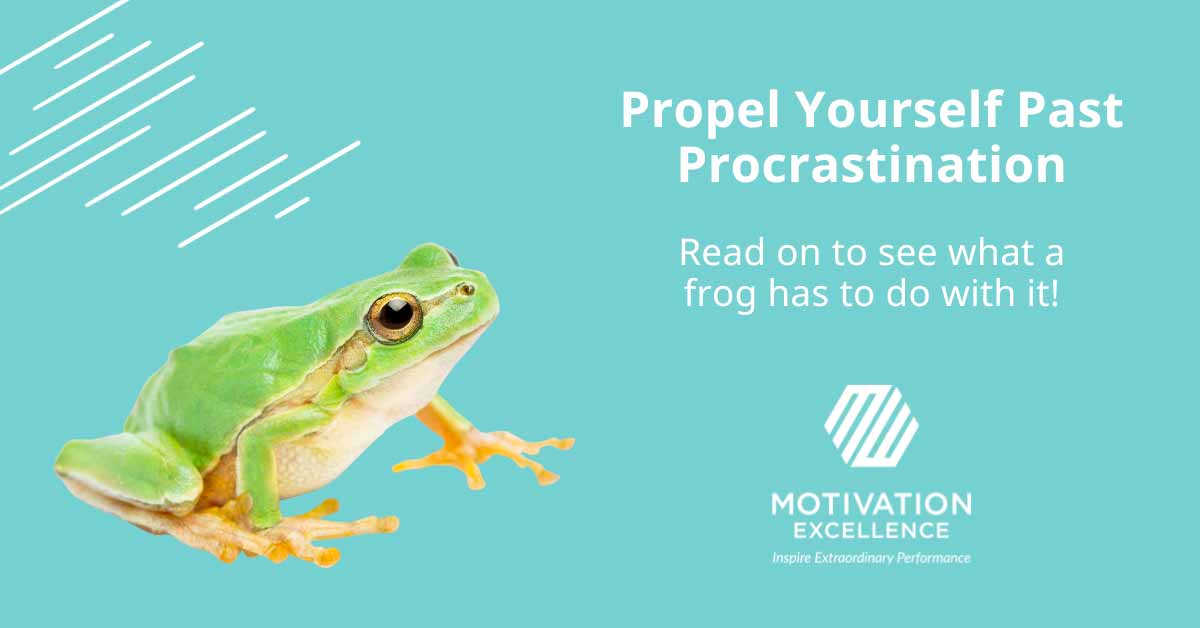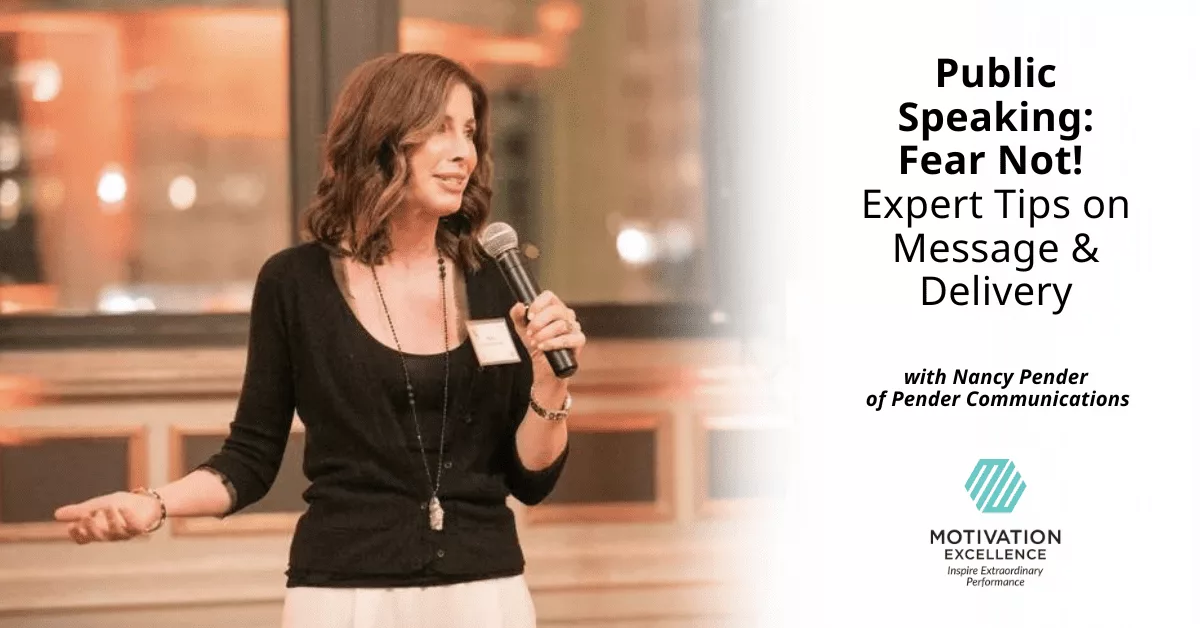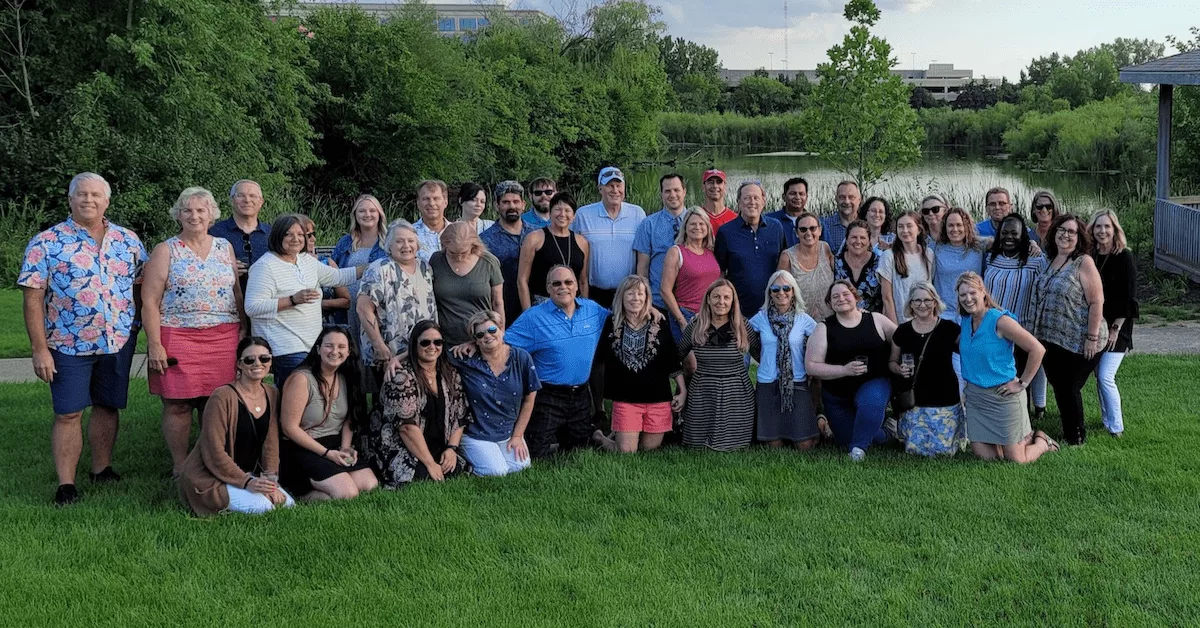Make Gratitude Your Attitude All Year Long
In the United States, November is the BIG month for gratitude, with Thanksgiving starting off the holiday season through the end of the year. But research shows living a life of thankfulness ALL year is truly beneficial to your health.
Robert Emmons is the leading scientific expert on gratitude. Through his research, he and his team found that being grateful:
- Boosts your immune system
- Lowers your blood pressure
- Helps elevate your mood
- Allows you to celebrate the present
- Blocks negative emotions, like envy, resentment and regret
That’s a long list of attributes! Plus, think of the lift it gives to the people whom you show your gratitude. Like most positive traits though, it does take practice for most of us.
Make Gratitude a Habit
The more you do something on a regular basis the more ingrained it becomes in your life. Being grateful can go from a few-times-a-year practice to a habit with a little bit of conscious effort. Emmons recommends keeping a grateful journal. In it, you’d keep a running tally of the reasons in your life you have to be thankful.
There are a bunch of other ways to practice gratefulness in different situations. Below is a list of some ideas. Click on the links to get more details and even more ways to practice.
University of Minnesota Ten Ways to Become a More Thankful Person
Change your perspective – Bummed that you’re hobbling around in a boot after spraining your ankle? Put yourself in the figurative shoes of someone who is non-weight bearing for six weeks and is struggling with crutches, or the unlucky person who broke both legs and is confined to a bed or wheelchair. There’s always someone worse off than you. This can help you feel grateful for only having a minor inconvenience.
Use technology to share – Stuck on your laptop? Tethered to your phone? Set a reminder to send a message of thanks to someone in your life at least three times a week.
Appreciate the good times – If you find yourself enjoying a moment, take note of it and the physical and physiological sensations it brings. Does your face hurt from laughing? Is your chest bursting with pride? Are you overwhelmed with a feeling of love? Relive it as you fall asleep, or the next time you need some inspiration to be grateful.
Headspace How to Be More Grateful
Meditate – Take some time to ask yourself who or what you are most grateful for in your life. This can be done in short stints as you encounter difficult or challenging situations. Take a minute at your desk or in the quiet of your car. You can focus your meditation on your life in general, or specifically what you’re thankful for at that moment.
LifeHack – 40 Simple Ways to Practice Gratitude
Share acts of kindness – Whether it’s holding the door for the person behind you, paying a stranger a compliment or buying lunch for the person behind you in line, acts of kindness build a sense of gratefulness in you and others.
Use social media – Let’s face it, most of us are on it more than we intend, so use it as a space to acknowledge your blessings. Tag someone if they’ve done something to help you. Give a shoutout to a long-lost friend who once had a more prominent part of your life. Start the day with a list of three things you’re recently grateful for.
Working Together Multiplies Gratitude
Volunteering for charitable organizations is a great way to express your gratitude for what you can give to others. And working with a group, whether it’s your coworkers, friends from church or total strangers with a common desire to help, can create an explosion of good feelings! When you see a need and can help fill it, you are living in the moment and appreciating the life you have.
At Motivation Excellence, supporting a variety of charities is central to our core. We organize many on-site and off-site activities centered around helping others throughout the year. We also give each employee two days off each year to dedicate time to favorite worth-while causes. The two links in this paragraph will give you a lot of ways on how to incorporate charitable events and volunteering at your place of business.
Don’t Keep Quiet
We are often reminded of how grateful we are to have someone in our lives AFTER they’re gone. Remember to tell people while they’re alive how much they mean to you. Call your parents and grandparents more often. Tell your friends what they mean to you when you’re together. As you give a hug goodbye let people know that you appreciate them and what they do for you.
The great thing about gratitude is it’s free to share and easily gains momentum. It all starts with a thank you, a kind gesture, a compliment or even just a meaningful smile. The chain of gratefulness can grow, and that wonderful feeling of appreciation can spread to people you’ve never met. So, today, be the one who puts the “great” in grateful by being the example others can copy and share!
Making Perception Corrections: How to Turn that Frown Upside Down
Perception is more than a visual sense. Is the Uno card showing a 6 or a 9? You know that where you’re sitting in relation to the card might change what you see. And while visual perception is important (there’s credence to the saying, “Dress for the job you want”), how your gut instinctively feels about your environment and the people around you says a lot about your mindset. How people feel about you can limit your opportunities or push you to a whole new level. This blog is about changing perceptions when needed—yours and theirs.
Change Your Own Perceptions
You wake up and stub your toe on the bedside table. Do you immediately think, “Oh, it’s going to be THAT kind of day?” Now, you’re just looking for bad things to come your way, and you feel vindicated as they do. “Well, I knew when I woke up this day was going to suck.”
If you stub your toe and think, “Shoot, that hurts, but I’m not going to let it dictate the rest of my day,” you haven’t committed yourself to looking for more negatives. Going a step further, actively looking for the good things will help you find the good things. When you actively challenge your perception of a situation or person, you’re giving yourself the chance to change it too. Medium.com gives some other tips to help you turn the tables on your inner feelings:
- Count your blessings
- Be purposefully aware of how you internally react to your environment
- Learn from the past and move on
When you look in the mirror, do you study your flaws or smile at your attributes? For the next week, make a conscious effort to start each day by naming at least one nice thing about yourself: physical, mental or otherwise. Try thinking, “I have a nice nose,” or “I’m a great listener,” or “I am good at including people.” You might be surprised to find you have more good days than bad AND other people will notice and see you in a more positive light too!
Change People’s Perception of You
If you’re self-aware, you likely have a pretty good idea of what people think of you. Sometimes, it’s a positive assessment, which is obviously great; no change needed. But, what if you sense the opposite—or someone flat out tells you—they think you’re bossy or you don’t contribute ideas to a brainstorming session. These perceptions could cost you a friend or a job. If you believe they’re misperceptions, a change of direction is warranted ASAP.
VantageLeadership.com suggests communicating your intentions is imperative. Perhaps you noticed no one stepped up to take the lead on marketing materials for a new product, so to get everyone started, you delegated tasks out like a blackjack dealer. You meant to start momentum, not boss people around. For our second example above, maybe your ideas are continually shot down so you became afraid to speak up. You intended to be an active listener instead, but it wasn’t seen that way.
Garflinkle Executive Coaching offers other ideas to get people to see you differently:
- Be aware of how your behavior affects others
- Ask for feedback
- Be your own cheerleader
- Be open to changing tactics
It’s been said that perception is reality. If you think of yourself as confident, successful and relevant, others are more likely to see you that way too. If people see you as stuck-up or a constant downer, you’ll have a hard time making friends. If you know how people perceive you and don’t like it, you can take steps to change your behavior. It’s not an overnight journey, but each time you challenge someone’s perception of you with a positive change, it helps them build a new image.
Find Your Balance
On the flip side of this discussion, we could ask, “Should I really care what someone thinks about me?” No one should base their daily existence on being seen in the best light by everyone at all times. There are going to be people you can’t sway to like you no matter what. The trick is to find a natural balance between making positive changes that help you achieve your goals and knowing who you are at your core and being okay with not everybody liking you.
With all that said, developing a positive outlook (but not toxically positive—it’s a thing!) is a great goal for all of us. It certainly helps boost our mood and smooth over some of life’s inevitable bumps and holes. If you can believe it, you can perceive it (or maybe the other way around?).
Good luck!
An Easy Read on Having Difficult Conversations
We’ve all been on the receiving end of heart-plummeting conversation starters like:
“We need to talk…”
“Please come into my office for a few minutes…”
“There’s something I need to tell you…”
“Close the door behind you…”
Did your tummy get a little queasy reading any of those? While the recipient legitimately can feel instant apprehension upon hearing someone say those words, the speaker has probably been reeling from internal turmoil leading up to the conversation for quite some time. If you’re in need of having a difficult conversation, what are the best tactics to employ so everyone walks away feeling, at the very least, less sick to their stomachs?
Just Do It
First of all, if you’re uncomfortable about something, Entreprenuer.com says to recognize it as a signal that a good, albeit hard, conversation needs to happen. The author says these talks are about learning, not winning.
Harvard Business Review published tips on tackling challenging situations, especially for conflict-averse individuals. They include:
- Don’t push it off
- Don’t worry about being liked
- Be direct and respectful
Using active listening skills and conflict resolution strategies can be critical to the outcome too. Goals for a positive result, according to Psyche.co, is to find:
- a solution,
- a plan, or
- an understanding
Even though you’re wading into murky waters, keeping a proactive outlook will help steer the conversation to a safer harbor.
Think of the Positives
Mindset has a key role in how a critical talk plays out. The University of Delaware suggests looking at the positives from the moment you decide to engage someone in a potentially uncomfortable confab. One way to do that is to forecast the outcomes you hope to see, such as:
- Resolving a problem
- Embracing constructive change
- Gaining a better understanding of a person/situation
- Repairing valued relationships
If a relationship, job or project is worth having, it’s worth the few moments of uncomfortable uncertainty that come at the onset of a dreaded discussion. If you focus on the hopeful result, you’ll set yourself up with “good vibes momentum” that your conversation partner will feel. In addition, it could acknowledge the “elephant in the room” you were both feeling, giving you credit for getting it out in the open.
That Sense of Relief
Some people put off going to the doctor or dentist only to realize after it’s over, that it “wasn’t that bad.” (How often do we say that to our kids about a shot?) It’s natural to build up worst-case scenarios in your mind when it comes to things we just don’t enjoy doing. And for many people, putting your own emotions on display while knowing you’re likely to be the reason someone else’s emotions erupt can be daunting at best.
Reality is often much easier and more resilient than you anticipate. Have faith that you are putting in effort, coming from the right place and looking for a better future when you embark on your next difficult but critical conversation. Hopefully, this blog has given you the motivation and tools to calm your gut and lead with your heart. Good luck!
Propel Yourself Past Procrastination
It feels odd that a word with “pro” at the very beginning is actually not a positive. Procrastination is definitely not a word associated with any kind of desired behavior. And if you’re not a PROcrastinator, does that mean you’re an ANTIcrastinator? Something to think about as you read this blog and avoid the next item on your to-do list. 😉
Procrastination is a habit that can be broken with the right mindset and psychological tools. CollegeData.com says the first step is to admit you’re doing it in the first place. Why you’re doing it is a great follow-up. Is the task too large? Too boring? Too easy to put off because you don’t have a critical deadline? Sometimes fear of failing can also trigger a delayed response.
Procrastination Is an Active Choice
Mindtools.com shares that procrastination can often make us feel guilty or ashamed. Sometimes those feelings snowball and we’re stuck in a cycle of growing desperation and plummeting self-worth. Yuck! It’s definitely best to tackle tasks in a timely manner. Their article suggests several ways to stop and overcome procrastinating on a project-by-project basis.
- Break larger endeavors into smaller chunks
- Develop and stick to a schedule
- Change your environment if it’s distracting
- Ask a friend to check your progress
- Motivate yourself with a worthwhile reward
Many of these tips are also great for meeting goals. Below is a snippet from our blog on reaching goals (January 2020). This specific analogy has really stuck with me since that writing (mostly because it’s gross, but also because it’s true). Meeting goals and fighting procrastination have many similarities.
Send Your Stock Soaring
Time Management is also a critical tool to overcoming procrastination. Creating a to-do list, avoiding multi-tasking and establishing a routine are all good practices to embrace when you find yourself pushing a task off multiple times.
The results of getting your work done on time are multi-faceted! You’ll be seen as someone who is:
- Trustworthy
- Responsible
- Goal-oriented
- Productive
Those attributes will help your self-esteem rise!
We all deal with periods of procrastination in our lives. The goal should be to minimize it as much as possible. I’m trying to lead by example. Often, my blog writing gets pushed off until the last week or two of a month. I thought it was most appropriate, with this topic especially, to get it done in the first week of this month! My reward will hopefully be more engagement with it throughout August. If you liked it, please share it on your social channels. Don’t delay – it could help one of your friends go from procrastinator to anticrastinator! 😊
Public Speaking: Fear Not! Expert Tips on Message & Delivery
Public speaking. Do those two simple words together make your stomach plunge and your throat tighten? It’s one of the most commonly reported “biggest fears.” Psycom states glossophobia affects up to 75% of the population! And even that other 25% still have some trepidation, if they’re at all human. 😊
Nancy Pender is no stranger to being in front of an audience. As a Peabody and Emmy-award-winning TV journalist, she was last an anchor and reporter in Chicago before segueing to a career helping professionals hone their communication skills to be more effective on the job. Pender Communications is an executive and media communications consulting company, specializing in a variety of skill sets including speech preparation, DIY sizzle reels and media interviews. As the founder, her aim is to help business professionals craft and deliver meaningful messaging, with the latter pulling a significant amount of focus.
“When I’m hired to help a client craft a speech or PowerPoint presentation, I also work with them on delivery skills. Words are important, but it’s how we deliver those words that has the most impact on an audience,” Pender says.
She obviously runs into a good number of clients who have a hate-hate relationship with the delivery part. For many of us, it’s due to past experiences that didn’t end well. Any of these situations feel painfully familiar?
- Being thrown into the spotlight with no prep time
- Technical difficulties took center stage
- No one listened, and instead kept right on talking to their friends
- Literally lost your notes and thus lost the audience
- Didn’t practice enough so had to rely on reading instead of engaging with the audience
Luckily there are ways to overcome many of those stumbling blocks. Depending on your environment and message, some or all of the following can be helpful:
- Practice, practice, practice – if you know your message really well, you can overcome losing your notes or having a teleprompter go down.
- Record your practices and look for: places to take a natural pause, whether your gestures are too much or too little, and the appropriate use of facial expressions.
- Bring visual aids or something else to grab attention, especially right off the top. Do you play a handheld instrument? If appropriate, 30 seconds on a trumpet will get all eyes on you!
- Find the supportive faces in the audience and use them like they’re your partner.
- Allow yourself to laugh off the hiccups, or at yourself, if needed.
Pender has her own list of must-dos to help create a meaningful and memorable presentation, whether the audience is a boardroom of 12 or a ballroom of 200.
Even if you do all the “right things” leading up to a public speaking event, recognize you’ll still have nerves. Pender says they can actually make you perform better.
“Contrary to public opinion, presentation jitters can be a good thing. When used effectively, they help us focus better, energize our delivery, and prompt us to practice more, which reduces anxiety. The goal isn’t to eliminate the butterflies but to get them to fly in formation. Harness the energy to your advantage.”
Mayo Clinic has an article that walks people through some psychological exercises as well, including breathing techniques and visualization. Pender says making it about what the audience needs, rather than your own fears, can also help.
“Instead of viewing a speaking engagement with dread, reframe it as an opportunity to improve the lives or careers of others. You have innovative ideas that need to be heard. The most effective speakers are those who are able to focus more on the needs of their audience and less on themselves. Make that sentence your mantra and you’ll be well on your way to a more successful speaking scenario!”
There, now do the words “Public Speaking” sound a little less scary? It’s definitely a great skill to have, whether you’re pitching to a prospective client, raising funds for a charity at a gala, or coaching middle-schoolers basketball. And, chances are, you’re going to have to do it every so often no matter what you do for a living, so embrace the experience and harness those butterflies!
Motivation Excellence Awarded Best & Brightest Companies to Work For® in the Nation 5 Years Running!
The team at Motivation Excellence, a performance improvement incentive company headquartered near Chicago, is thrilled to accept the 2023 Best and Brightest Companies to Work For® in the Nation designation!
“We work diligently as a company to show respect to our employees and foster an environment of collaboration and trust. It’s always a work in progress as we continually strive to be even better,” said David Jobes, CEO and President of Motivation Excellence.
The National Association for Business Resources awards the Best and Brightest Companies to Work For® honors. More than 1,300 companies applied for this latest class of winners, with 195 companies earning the designation based on a number of key measures relative to other nationally recognized winners. Applications are assessed by an independent research group.
“Those companies that made the list of Best and Brightest Companies to Work For® as well as those companies that continue to make the list are truly remarkable. Given today’s need for talent, retention of talent, and the further issues related to the pandemic, these companies have proven they are superior to market conditions. They are elite thinkers, and this honor demonstrates their commitment to excellence,” said Jennifer Kluge, President and CEO of NABR and The Best and Brightest Program.
Motivation Excellence is a multi-year winner of the local Chicago Best and Brightest award as well.
In 2022, the company acquired another incentive travel firm in Michigan. The leadership team is happy to accept local Best and Brightest honors for their Traverse City location this year too.
“Our motivation for being the best employer we can be is based on our mission to Inspire Extraordinary Performance. When our team feels secure, heard, and respected, it absolutely transfers over to how they deal with our clients and their participants,” Jobes adds.
Motivation Excellence uses performance tracking technology, aspirational rewards and white glove service for clients looking to improve sales, relationships and mindshare. Reward options include wow-worthy group travel experiences, access to thousands of merchandise selections and special event tickets, and a highly personalized Concierge Shopper service.

Teeming with Self-esteem; Why the Right Level Is Important for Success
So much goes into self-esteem. There are external influences like how others perceive and treat you. And internal factors like confidence and self-awareness. Some people just seem gifted with healthy self-esteem, while others scream conceit or whisper inferiority. There are definitely steps you can take to balance this often emotionally tied characteristic. Check your ego at the door and absorb how you can develop the best Y-O-U there can be!
Self-esteem 101
Self-esteem can be measured on a spectrum from low to healthy to arrogant. Your opinion on your value can fluctuate given the circumstance, company you keep, and period of life you’re in. Below are general defining thoughts for various degrees of self-esteem.
People with low self-esteem might feel:
- Negative about themselves and life in general
- Anxious
- Unmotivated
- Uncertain about their abilities
People with healthy self-esteem seem to know:
- They have value
- Their positive qualities
- They can take on a challenge
- The future can be rewarding, even if it’s unknown
People with too high a self-esteem may:
- Think they’re better than others
- Have little patience with teammates
- Feel entitled to the best life has to offer
- Bite off more than they can chew
Knock, Knock… Who’s There Matters
One of the biggest factors of self-esteem is security. If you’re in an unsafe or unstable environment over a length of time, it can create self-doubt and feelings of unworthiness. If so and so is always belittling you at work, or you’re constantly being punished for trivial things at home, or you’re the victim of bullying at school, there’s little doubt it’ll affect your perception of yourself. To combat that, make sure you’re doing what you can to change your circumstances.
- Surround yourself with uplifting people
- Gain the skills needed to feel more confident
- Find a trusted person you can use as a sounding board
- Learn the best words to use to speak up for yourself
Get on the Me Team
Knowing who you are, feeling accepted, and having confidence in your skills are three important internal traits that lead to having a positive opinion of yourself. Some tips to enhance those characteristics include:
- Embrace lifelong learning – the more you know, the more you grow!
- Be true to who you are and surround yourself with people who accept you that way
- Keep a journal to remember your successes – even the small ones
Very Well Mind writes that self-esteem grows as you do, meaning from childhood to adulthood you will likely see a steady increase before it levels off. Of course, most of us will ride some waves that dip into the low level again before carrying us back up to a better level. If you constantly feel like your self-esteem is in flux, seeing a professional is a great idea! It may just be a nasty case of imposter syndrome, or it could be more deep-seated.
Use Self-Esteem to Your Advantage
People with well-honed self-regard are more likely to achieve their goals, see the positive side of things, and move ahead at work. Your self-esteem influences your thoughts, choices and decisions. It showcases how you present yourself, and thus, how people see you. Your self-esteem is projected through your posture, how you speak to others, and how you work on a team.
And remember, sometimes it’s people with crumbling self-esteem who try to bring yours down with bad behaviors and remarks. This is a perfect opportunity to level up and take them with you. Others will hold you in high esteem if you can do it!
Time Management: A Quick Read to Maximize Your Ticks and Tocks
We could all use a little extra time. But, since no one has been able to figure out how to make each day more than 24 hours, we need to rely on time-tested, time management skills. You’re busy, I’m busy; so let’s get right to the heart of this subject in the least amount of time. It’s a super short read, I promise!
Why Time Management Matters for You
You could be a procrastinator. Or, perhaps, you’re the person who’s always the last to arrive. Maybe you’re tired of overdue library books and late fees on bills. No matter if it’s your personal or professional life, managing your own clock well brings multiple benefits to you and those around you.
- Reliability – when you get your tasks done on time, you earn trust
- Productivity – the better you are managing your time, the more productive you can be
- Confidence – reliability + productivity = a boost in self-assurance
Time Management Strategies
There are dozens out there, but below are the most repeated tips I found. Once you land on what works for you, repeat for peak efficiency in every part of your life.
- Know your tasks – whether it’s on a to-do list or set in calendar reminders, make sure you have a record of what needs to get done and when it’s due
- Prioritize – some things are just more important than others
- Biggest impact
- Most time-sensitive
- Can be delegated
- Avoid multi-tasking – it turns out no one is really good at it
- Block out distractions – turn off the email reminders, put your phone out of arm’s reach, and resist surfing the internet
- Establish a routine – do your hardest tasks when you’re most energized each day
Time Management Help
There are plenty of apps to help organize calendars, tasks and due dates. VeryWellMind.com lists their favorite six for 2023. Some are for households, while others are great for work life. They all have free versions too!
Below are links to articles I found helpful when researching this topic:
Indeed – Time Management: Defeating Distraction
Michael Page – 5 Tips to Better Time Management
Dale Carnegie – A Practical Guide for Time Management
Look at that – you’re done reading our blog. If you have time to spare, knock off one more thing on your to-do list before you call it a day!
Don’t Shortchange Yourself When it Comes to Making Changes
If the only type of change you can handle jingles in your pockets, it’s time to make some adjustments. After all, change is a constant, and learning how to lean into it can save you some aggravation and wasted time. Being resistant to big and little modifications in your life can mean missing out on amazing opportunities, learning new things, and discovering new interests. Being receptive to change can mean great things for your health, career and personal life.
Why Change Can Be Hard
Leadership development company Primeast shares four main reasons people are resistant to change in the workplace.
- Self-interest
- Misunderstanding and lack of trust
- Different evaluations
- Low tolerance for trying something different
Their article also delves into two types of change an employee might encounter at work: Operational and Social.
Operational deals with what an employee does and how they do it. Operational change might come in the form of new technology that an employee needs to learn.
Social deals with whom, and how, an employee interacts on the job. If there’s a new hierarchy put in place or a shake-up among coworkers, it affects the social aspect of life at work.
Social change is tied more to an emotional reaction, but operational change can certainly also evoke anxiety. In fact, any type of change welcomed or not, can cause stress, especially if it feels out of your control.
Leading Change
Harvard Business Review notes that often the initial reaction to change is pulling back, rather than pushing forward. Business leaders can play a huge role in preparing employees for change, guiding them through it and fostering solid coping skills.
- Give positive true stories of other people who moved beyond the status quo
- Create a safe space to talk, share emotions and ask questions
- Go through “What if” scenarios
- Set reasonable expectations
- Champion cross-team connections and encourage networking to gain new perspectives
In business, being adaptive is critical to growth and innovation! Creating a culture where employees feel like they can help control and direct change is how successful companies thrive. We’ve all heard of the saying, “be the change;” but unless you’re willing to get cozy with a little upheaval in your life, you’ll continue to “be the norm.” This might sound very appealing, but in actuality, you’re shortchanging your abilities to grow and evolve. If that makes you uncomfortable, then you’re already on the right track when it comes to working through those inevitable disruptions life throws at all of us. Staying flexible and resilient are great tools to help cope with change too.
Change Your Ways
Perspective is a powerful lens. When I was diagnosed with Celiac Disease 13 years ago, change was very unwelcomingly thrust upon me. I did not consume a very diverse diet. Gluten-filled foods were my main sustenance. All I could think about was that I wouldn’t be able to eat bread and cereal and baked goods anymore.
My neighbor and her daughter came over shortly after my diagnosis, both had lived with Celiac for many years already, with a hand-written list titled “WHAT YOU CAN STILL EAT.” It included gluten-free bread and bakery brands they enjoyed; cereals that were naturally gluten-free; and favorite snacks like popcorn and chips. Their advice was to concentrate on what can stay the same, instead of everything I was going to miss.
Real Simple published 11 coping strategies to try as you trudge through any kind of change. Focusing on the positive aspects is one of them. Others include:
- Accept help
- Control what you can
- Be patient
- Connect with others
It turns out that having to give up gluten led me to a renaissance of healthier living! I eat all sorts of vegetables, fruits, and other grains now. I found new favorites (cauliflower pizza crust – YES!) and learned how to make my old favorites with other ingredients (quinoa, tapioca, and cassava flours are great). Things I had turned my nose up at before (avocado, brussels sprouts, beets, and mushrooms, to name a few) have become standards in my diet because I was forced to make huge alterations and decided to make the most of it.
We’ve all heard that “opportunity knocks,” but if you’re too scared/stubborn/rigid to see what’s on the other side of the door, you could be trapped in a cycle of anxiety, regret and growing inflexibility. That sounds horrible! Do yourself a favor and take small steps to set yourself up for future success.
- Answer that door…
- Step outside…
- Lean toward something out of the ordinary…
Before you know it, you’ll not only be more adept at navigating the unknown but who knows, you could even become a change-maker yourself!
Conflict Resolution: Find the Solution that Works for You!
Ever feel like you run into conflict with the same person again and again? Maybe it’s a coworker, or a family member, or a friend of a friend. Sometimes personalities just clash, and it’s not necessarily always one person’s fault. (Although, honestly, we all run into people who seem to make it their goal to make your day a little harder.) Knowing that we all face individuals, or situations, that make us want to scream, or run away, or break out in tears, having conflict resolution tools at our disposal is important.
So Many Strategies
Think of the following as a warehouse of conflict resolution solutions. There are a lot to choose from! You may find some will work better than others, depending on your personal situation.
PositivePsychology.com reports that being in a prolonged state of conflict is harmful emotionally, physically and mentally. Their in-depth article on everything to do with conflict resolution outlines:
- Key skills to develop (including self-awareness and active listening)
- Methods to use in an office setting
- Health benefits to relieving conflict
- Games and activities to facilitate resolution
A key takeaway, for those in a rush to find viable solutions, is to allow your emotions to subside before engaging in any other technique. Take that deep breath, walk away for a moment or longer, and let the immediate rush of emotion dwindle so you can lead more with your head than your ego or heart.
Tammy Dunnett is a communication coach and self-titled “talksicologist” who specializes in conflict resolution. She published an article on LinkedIn promoting the “5 Cs of Communication in Conflict.” Her advice to maximize the connection and minimize the conflict is to be:
- CLEAR with your feelings
- CONCISE with your words
- CURIOUS about the other person’s perspective
- COMPASSIONATE about the other person’s feelings
- COLLABORATIVE in finding a solution
Vermont-based Champlain College outlines its top five conflict resolution strategies, focusing on recognizing the issue and organizing a solution.
- Don’t ignore it
- Clarify the issue
- Talk together
- Find a solution
- Monitor and follow up
My final entry into this handy “conflict resolution solutions warehouse” is from BetterUp.com. This article outlines the five conflict management styles most of us fall into, from avoidance to collaboration. It then highlights 11 strategies to help resolve struggles we might face in everyday life, including:
- Be humble
- Avoid being defensive
- Show willingness
- Exercise patience
- Stay positive
Create Your Own Set of Solutions
After reading through the above articles, and more, I developed my own list of strategies to share. I whittled it down to four, and made them all start with a “W” as a catchy way to remember them–and also because alliterations are fun!
At the very basic level, both conflicted parties need to:
- Want it – be on the same page as far as the issue and goal
- Work at it – even distribution of effort required
- Walk away, when needed – breaks are OK and encouraged
- Welcome peace – appreciate your similarities, don’t focus on the differences
If the people engaged in the conflicted behavior can’t agree on the above, having a mediator join the discussion is encouraged. A third party is not emotionally attached, and therefore can cut through a lot of the clutter that could be clogging negotiations.
Use It Before You Lose It
We’re not advocating you go out of your way to find conflicts to resolve, but we all encounter a myriad of situations, sometimes daily, where we can call on the ideas in this blog to save ourselves, and others, some aggravation. Here are some real-life examples and solutions:
- Road rage?
- Deep breath – clear those emotions
- Compassion – give the other driver some grace
- Walk, er drive, away – the interaction was a split second; don’t let it take any more of your time and energy
- Judgmental comment made?
- If it’s by someone you know
- Be calm and clear with your feelings about it
- Listen to the other person’s perspective – perhaps they didn’t mean it the way you perceived it
- Welcome peace – don’t go out of your way to find reasons to be mad
- If it’s by a stranger
- Exercise patience
- Show positivity
- Be concise with your response, if you choose to make one
- If it’s by someone you know
- Your coworker constantly corrects you?
- Don’t ignore it, if it bothers you
- Don’t be defensive – assume good intentions
- Talk through it together – you might be on the “same side”
- Find a mediator if you need one
Sometimes, the best person to resolve conflict with is yourself! When you learn how to let the small things slide without riling up your emotions, it gets easier to stay calm during adversity. Maybe it’s developing an inner Q&A (Does this really matter? Do I need to make some personal adjustments? Does this have to be a fight-or-flight situation? Is this just a fleeting moment I can get through?).
When you can calm down your inner turmoil, projecting outer peace is so much easier! Finally, a genuine smile and gentle attitude can turn many would-be conflicts into positive connections, more often than you know.
And, remember we’re all different—and that’s good! It can be worthwhile, and even fun, to consider where the other person is coming from. You might gain a new perspective, or at the very least, learn what makes the other person tick…or get ticked off (always good info to have!).












